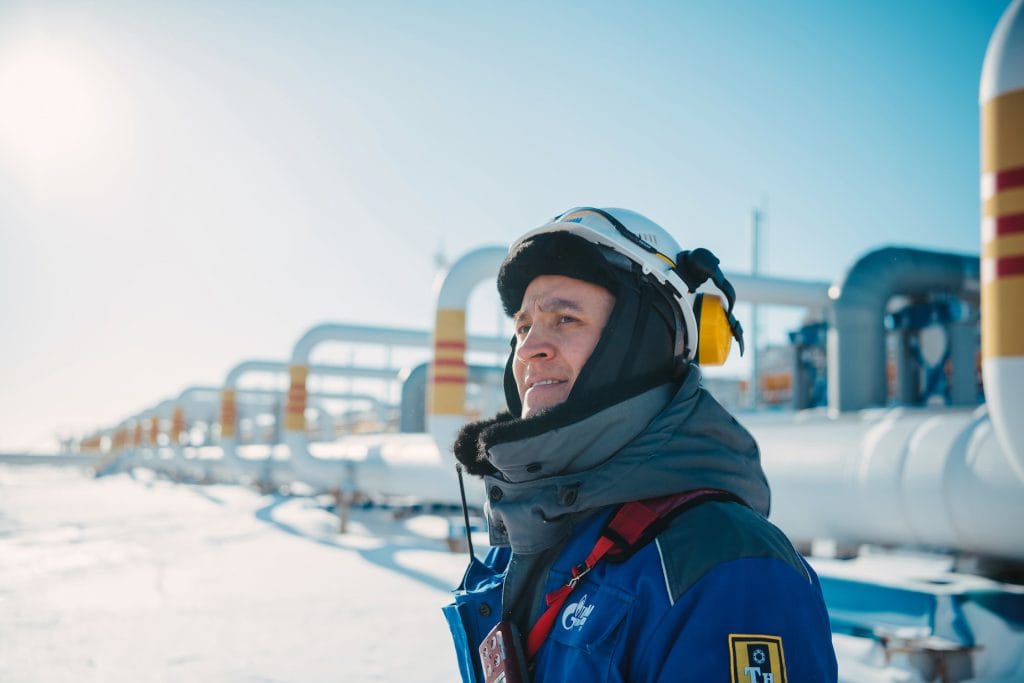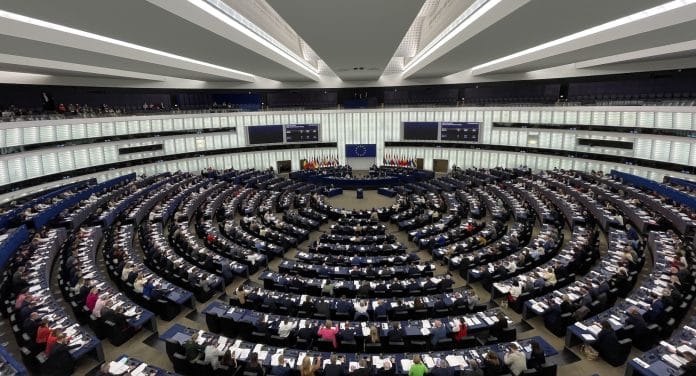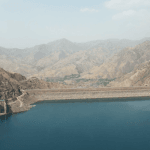Ensuring gas supply security ahead of the winter season, the European Parliament approved in Strasbourg on May 8 the Commission’s proposal to extend the EU’s 2022 gas storage scheme until December 31, 2027, which would otherwise have expired at the end of 2025.
At the same time, MEPs introduced several amendments to address speculation on the gas market and bring down prices, by introducing greater flexibility in rules on gas storage refilling as the existing mandatory 90 percent fill rate target by November 1 each year was driving up the cost of refilling during the summer.
At the draft law adopted with 425 votes in favour, 106 against and 43 abstentions, MEPs propose reducing the filling target from 90 percent to 83 percent, to be met at any point in time between October 1 and December 1 each year, the European Parliament said in a press release, adding that member states would be allowed to deviate by up to four percentage points from the filling target in the event of unfavourable market conditions, such as supply disruptions or high demand. The Commission may further increase this deviation by up to an additional four percentage points if these market conditions persist.
Member states would however have to ensure that the cumulative effects of flexibilities and derogations do not bring down overall storage filling obligations below 75 percent, MEPs said.
“Europe is adapting its policies in response to new realities brought on by climate change, the Russian war against Ukraine, and recent developments from the Trump administration,” Greek MEP Yannis Maniatis told NE Global.
“Preserving EU’s role as an international beacon of peace, fairness and stability, as well as promoting Europe’s strategic autonomy, resilience and economic growth and social welfare are at the center of our goals,” said Maniatis, who is a member of the ITRE Committee on Industry, Research and Energy and a former Energy Minister of Greece.
“Recently the European Parliament decided on Commission’s proposal for gas storage obligations reaching a well-balanced compromise with the view to guarantee security of gas supply in winter and at the same time offset market speculation on higher gas prices at the expense of European citizens and consumers,” Maniatis said.
Full embargo on Russian gas
Considering Russia’s ongoing war against Ukraine, member states should refrain from storing gas of Russian origin, MEPs said, adding that the EU should also pursue immediate sanctions on Russian gas imports, including liquified natural gas (LNG). A full embargo is both necessary and feasible, they said.
“It’s very important that Europe was able to protect its citizens in a situation where Russia was using gas as a weapon of blackmail” rapporteur Polish MEP Borys Budka said during the debate in Strasbourg in the afternoon of May 7. Parliament wants to “provide for more flexibility and less bureaucracy but above all to bring Europe’s gas prices down,” he added.
However during the plenary debate, some MEPs including Marie Toussaint from France cautioned that Europe should not become over-reliant on U.S. LNG as President Donald Trump demands.
The European Commission said the EU will end its dependency on Russian energy by stopping the import of Russian gas and oil and phasing out Russian nuclear energy, while ensuring stable energy supplies and prices across the Union. The REPowerEU Roadmap, presented on May 6 by the Commission, paves the way to ensure the EU’s full energy independence from Russia.
“With REPowerEU, we have diversified our energy supply and drastically reduced Europe’s former dependency on Russian fossil fuels. It is now time for Europe to completely cut off its energy ties with an unreliable supplier,” Commission President Ursula von der Leyen said.
Today, we take an important step towards Europe's energy independence.
With our Roadmap, we will complete the phasing out of all remaining Russian energy into our Union.
While ensuring stable supplies for businesses and consumers.
This is REPowerEU in action ↓
— Ursula von der Leyen (@vonderleyen) May 6, 2025
EU Energy Commissioner Dan Jørgensen from Denmark said, “The message to Russia is clear: No more shall you blackmail our Member States. No more shall Euros go into your war chest. Your gas will be banned. Your shadow fleet will be stopped. We do this to preserve our security. But it is also an important step towards becoming energy independent. Producing our own clean affordable energy instead of importing expensive fossils fuels.”
As of 2025, the global LNG supplies are foreseen to grow rapidly, while gas demand will decrease, the Commission said in a press release. With the full implementation of the energy transition framework and the Action Plan for Affordable Energy, the EU is expected to replace up to 100 billion cubic meters of natural gas by 2030, which means a decrease in demand by 40-50 bcm by 2027. At the same time, LNG capacities are expected to increase by around 200 bcm by 2028, which is five times more than current EU imports of Russian gas.
The Commission will further propose to stop all remaining imports of Russian gas by the end of 2027.

Under the Roadmap, the Commission said it will also put forward new actions to address Russia’s shadow fleet transporting oil.
“Proposals, like Commission’s Roadmap to phase out Russian fuels from EU’s energy mix, which lead to higher levels of security of supply and minimize EUs dependence on unreliable suppliers are welcomed,” Maniatis told NE Global, adding, “Especially proposals, which aim to coherently address the risks of weaponization of energy supplies, ensure EU’s independence and signal support to Ukraine. Of course, as any other Commission’s welcomed proposal, we still need to thoroughly discuss this Roadmap and if necessary to fine tune the upcoming legislative proposals, with the view to secure a well-balanced approach equally promoting Europe’s security, affordability and sustainability, as well as preserve a well functioning gas market in Europe.”







